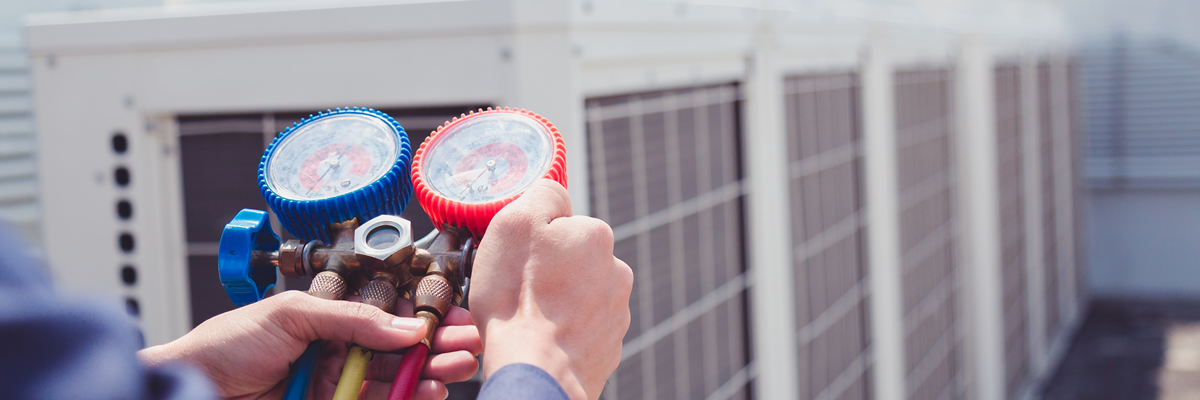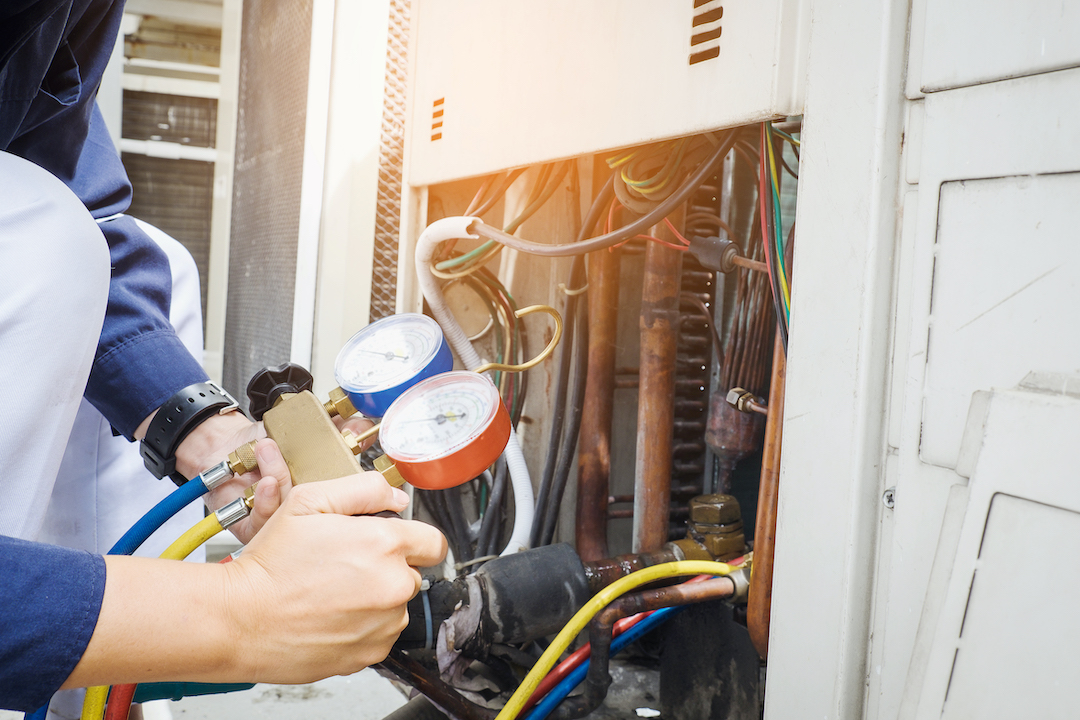How to Know It's Time for a furnace replacement
How to Know It's Time for a furnace replacement
Blog Article
Choosing In Between a Heat Pump and Heating System: Secret Factors To Consider for Your Cooling And Heating Requirements
When assessing home heating alternatives for a/c requires, the choice between a warmth pump and a heating system can be complex. Each system offers unique benefits tailored to specific climates and energy performance goals. Recognizing these distinctions is important for making an educated choice. Key factors such as installation prices and environmental impact further complicate the selection procedure. Which choice absolutely aligns with one's comfort and sustainability choices? The adhering to sections will certainly discover these factors to consider in information.
Understanding Warmth Pumps: How They Work and Their Benefits
While many home owners consider different heating choices, understanding exactly how heatpump feature and their benefits can considerably affect their decision. Heatpump operate by moving warmth instead of creating it. In the winter season, they extract warmth from the outdoors air or ground and transfer it inside your home, while in the summertime, they reverse this process, cooling down the home by removing warm outside. This double performance makes them flexible for year-round environment control.One of the primary benefits of heatpump is their power effectiveness. They make use of significantly much less electrical energy compared to typical heating unit, possibly resulting in lower utility bills (heat pump installation ooltewah tn). Furthermore, heatpump have a smaller sized carbon footprint, making them an environmentally pleasant option. They likewise need much less maintenance than standard systems, adding to long-term cost financial savings. On the whole, recognizing the mechanics and advantages of heatpump can aid homeowners make notified choices regarding their home heating and cooling requirements
Discovering Furnaces: Kinds, Operation, and Advantages
Heating systems are available in various kinds, consisting of gas, electric, and oil designs, each with distinctive operational devices. Understanding these differences is crucial, as they affect performance and home heating efficiency. Furthermore, furnaces supply many advantages, such as constant heat result and dependability in chillier environments.
Types of Furnaces
Heater can differ significantly in style and procedure, with heating systems being a preferred choice amongst house owners. There are a number of sorts of heaters, each using different gas resources and modern technologies. Gas furnaces are common, leveraging all-natural gas to create heat efficiently. Electric heaters, on the other hand, utilize electrical resistance to generate heat, typically favored for their uncomplicated setup. Oil heaters, while less usual, are efficient in areas with restricted gas access (heat pump replacement ooltewah tn). Additionally, condensing furnaces maximize energy effectiveness by reusing and recording exhaust gases. Each type runs through a system of warm exchangers and ductwork to distribute warm air throughout a home. Recognizing the distinctions in between these heating system kinds is important for educated heating and cooling choices
Advantages of Furnaces
For house owners looking for reputable heat throughout cold months, the advantages of heaters are significant. Heating systems supply constant heating, making sure also temperatures throughout the home. They are particularly efficient in severe cool, typically outmatching heatpump in icy problems. Numerous kinds, consisting of gas, electrical, and oil furnaces, offer versatility to satisfy varied requirements and preferences.Furnaces additionally have a tendency to have lower initial installment expenses compared to warmth pumps, making them an extra available choice for numerous. Their robust style adds to a much longer life-span, with lots of units lasting over 15 years with proper maintenance. Additionally, contemporary heating systems are usually equipped with innovative modern technology for boosted performance, which can bring about minimized power expenses. In general, furnaces remain a reputable option for efficient home heating.

Power Efficiency: Contrasting Warmth Pumps and Furnaces
When comparing power efficiency between warmth pumps and furnaces, the Seasonal Energy Performance Ratio (SEER) plays an important role in determining performance. In addition, a functional price evaluation discloses the long-term monetary ramifications of each system. Understanding these elements can assist homeowners in making notified choices about their heating services.
Seasonal Energy Efficiency Proportion
Energy effectiveness plays an essential function in the decision-making process between heatpump and heaters, particularly when considering the Seasonal Energy Efficiency Proportion (SEER) This statistics measures the cooling performance of heatpump over an entire air conditioning season, providing a standard way to assess performance. Higher SEER ratings indicate greater energy performance, translating to reduced power intake and lowered energy expenses. On the other hand, heaters are normally evaluated making use of the Annual Gas Usage Performance (AFUE) rating, which reflects home heating efficiency. When contrasting these two systems, home owners ought to focus on SEER rankings for heatpump, as they straight impact overall power financial savings and environmental sustainability. A detailed understanding of SEER can especially affect the long-lasting complete satisfaction and cost-effectiveness of the chosen HVAC remedy.
Functional Cost Evaluation
Recognizing the functional prices related to heat pumps and heaters is crucial for property owners assessing their options. Warm pumps usually offer greater energy performance, converting look here electrical energy right into heat with marginal waste. This results in reduced regular monthly utility bills, especially in moderate climates. Conversely, conventional heating systems, specifically gas designs, might have lower ahead of time costs yet can sustain higher functional expenses with time because of sustain costs and performance ratings.Moreover, warm pumps can operate as both heating and cooling systems, possibly decreasing the demand for separate cooling and heating units. While first investments for heatpump might be greater, their lasting cost savings in energy effectiveness can make them an extra affordable selection for many families. Mindful analysis of local energy prices is vital to establish the very best choice.
Installment Prices: What to Expect for every Heater
Installation prices for heater can vary considerably in between warm pumps and heating systems, affecting homeowners' decisions. Heatpump normally have greater ahead of time installation expenses, commonly varying from $3,500 to $8,000, relying on the system dimension and complexity of installation. This includes the outdoor unit, indoor handling system, and necessary ductwork modifications. On the other hand, heating systems have a tendency to have lower preliminary costs, averaging between $2,500 and $6,000, which can be appealing for budget-conscious homeowners. However, installation expenditures can raise if substantial ductwork is required.Moreover, the choice of fuel kind for heaters-- gas, lp, or electric-- can also influence installment expenses. While warm pumps use power effectiveness, their initial financial investment may discourage some buyers. Inevitably, examining installation prices along with long-term cost savings and performance will certainly aid home owners in making notified decisions concerning their furnace.
Environment Considerations: Which System Executes Better in Your Area
How do environment conditions affect the effectiveness of heater? The performance of warm pumps and heating systems can vary greatly depending upon the local environment. In modest climates, warmth pumps stand out by successfully transferring warmth from the outside air, making them an energy-saving choice. Their performance diminishes in extremely cold temperatures, where they might struggle to draw out enough warm. Alternatively, heating systems, specifically gas versions, supply reliable and regular warm despite outdoor conditions, making them more effective in cooler regions.In locations that experience milder winter seasons, heatpump can run effectively year-round, offering both heating and cooling. On the other hand, areas with rough winters frequently profit from the toughness of furnaces. Ultimately, comprehending the regional climate is necessary when determining in between a heatpump and a heater, as it directly affects their operational efficiency and total efficiency.
Upkeep Needs: Long-Term Care for Heat Pumps vs. Furnaces
While both warmth pumps and heating systems need routine upkeep to assure peak efficiency, their details demands and care routines differ significantly. Heating systems commonly require much less frequent interest, with annual inspections sufficing to check for gas leakages, clean filters, and assess total performance. Their simpler design often permits straightforward repairs.In comparison, heatpump demand biannual upkeep due to their twin role in home heating and cooling. This consists of cleansing coils, inspecting cooling agent levels, and making certain that both the indoor and exterior devices work at their ideal. Additionally, heatpump maintenance commonly involves more complex components, making expert servicing essential.Neglecting maintenance can bring about lessened effectiveness and raised energy costs for both systems. Ultimately, property owners should think about these lasting care requirements when selecting in between a heatpump and a furnace, as aggressive upkeep can prolong the life-span and efficiency of either system considerably.
Ecological Impact: Selecting a Sustainable Home Heating Option
The ecological influence of heating unit is a critical evaluation for house owners seeking sustainable options. Warm pumps are generally much more energy-efficient than standard heaters, as they move heat as opposed to generate it, significantly lowering carbon exhausts. By using renewable resource sources, such as air-source or geothermal heat pumps, house owners can even more decrease their visit environmental footprint.On the other hand, all-natural gas heaters emit greenhouse gases and contribute to air pollution, though they often give greater warm result. Innovations in modern technology have actually led to the advancement of high-efficiency furnaces that decrease emissions.Ultimately, choosing a heating system includes evaluating efficiency versus environmental influence. House owners are encouraged to assess local energy resources and incentives for renewable systems, making certain an option that lines up with both personal comfort and ecological responsibility. The choice affects not just prompt convenience however also long-lasting sustainability and environmental wellness.
Frequently Asked Inquiries
How Much Time Do Warm Pumps and Furnaces Typically Last?
The life-span of heatpump usually varies from 15 to two decades, while heaters can last in between 15 to three decades. Routine upkeep considerably influences their longevity and effectiveness in giving heating options.
Can I Make Use Of a Heat Pump in Very Cold Climates?
Heatpump can operate in exceptionally cold environments, however their efficiency decreases as temperature levels drop. In such conditions, extra home heating sources might be required to preserve comfy interior temperature levels and guarantee peak look what i found performance.

What Is the Sound Degree of Heat Pumps Versus Furnaces?
The noise levels of heatpump and heaters vary considerably. Usually, warmth pumps operate even more quietly than typical heating systems, making them preferable for those conscious seem, while furnaces might produce louder functional sounds throughout home heating cycles.
Are Warm Pumps Suitable for Both Heating and Cooling?
Heatpump are certainly appropriate for both heating and cooling (heat pump installation ooltewah tn). They function by moving heat, supplying reliable temperature control year-round, making them a functional choice for home owners seeking an all-in-one HVAC option
What Dimension Furnace Do I Required for My Home?
Determining the proper dimension heating unit for a home needs reviewing elements such as square video, insulation quality, regional climate, and the home's design. Consulting a specialist can guarantee a precise analysis and ideal comfort. Warm pumps usually provide greater energy performance, converting electric energy right into warm with marginal waste. In moderate climates, heat pumps stand out by effectively moving warmth from the outside air, making them an energy-saving option. On the other hand, heaters, particularly gas designs, provide dependable and consistent heat regardless of outside problems, making them better in chillier regions.In areas that experience milder wintertimes, warm pumps can run properly year-round, supplying both heating and cooling. Warm pumps are normally a lot more energy-efficient than standard heating systems, as they move warm rather than generate it, significantly decreasing carbon discharges. By using sustainable energy resources, such as air-source or geothermal warmth pumps, home owners can even more minimize their eco-friendly footprint.On the various other hand, all-natural gas furnaces give off greenhouse gases and add to air contamination, though they usually offer higher warmth outcome.
Report this page